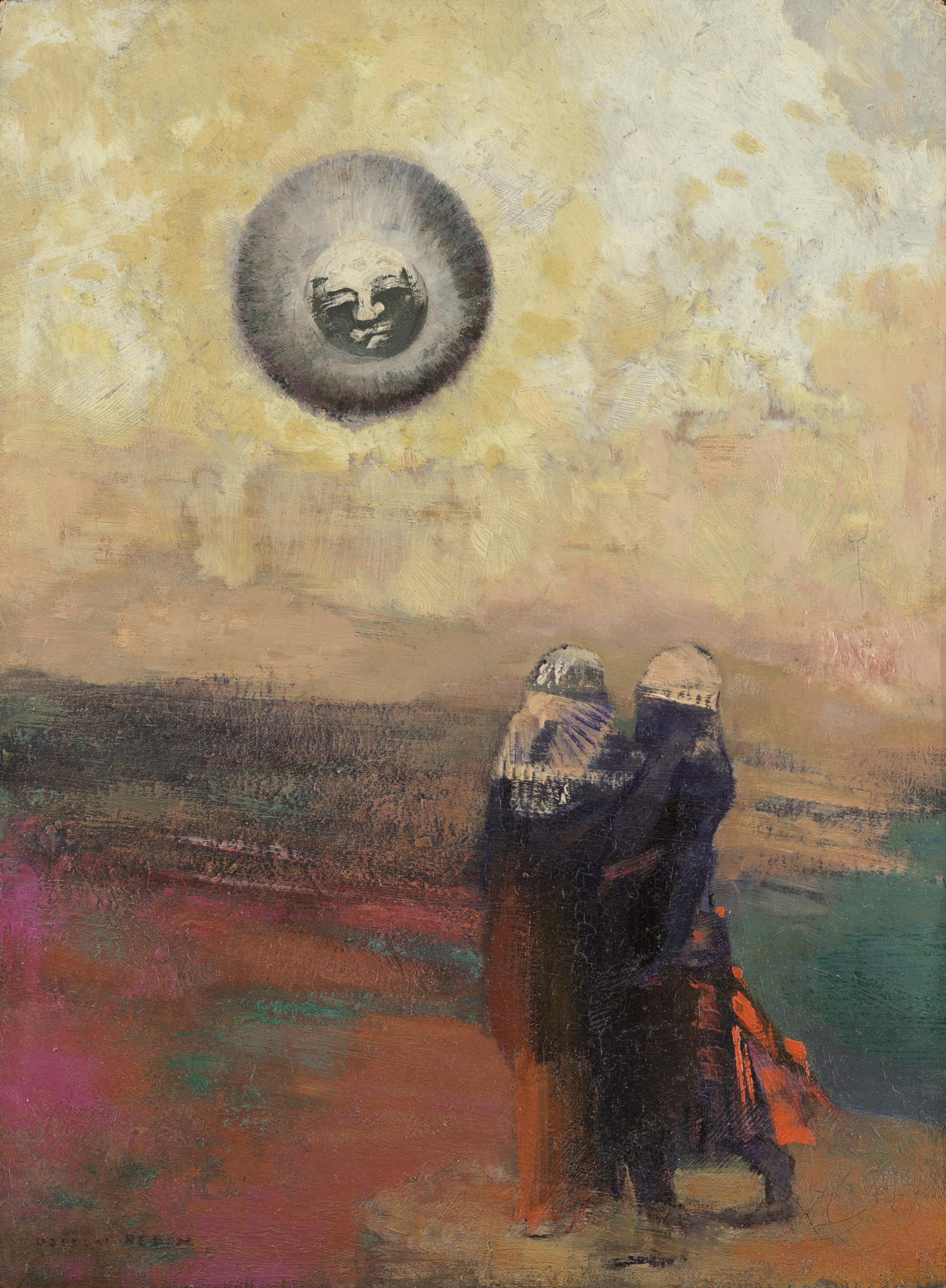A NEGLIGIBLE EXPERIMENT (3)
By:
December 15, 2023

J.D. Beresford’s pre-apocalyptic story “A Negligible Experiment,” which seems to have first appeared in his 1921 collection Signs & Wonders, is an allegory born of religious doubt. HiLoBooks is pleased to serialize it here for HILOBROW’s readers.
ALL INSTALLMENTS: 1 | 2 | 3 | 4.
I can, however, only speak of two, myself and another man. We sat together on a hill in Derbyshire and watched through the last night.
A certain calmness had come to me, then, mingled with the queerest feelings of excitement and expectation. Within sight of death, I could still enjoy this amazing celestial adventure. The new planet that was rushing in upon us had already torn us from our steady path about the sun, and our old familiar moon dwindled to the size of a sixpence, and, diminishing almost visibly, was within a few hours of destruction. For the moon had fled its old allegiance to the Earth and was rushing to the arms of this great stranger like some passionate, unfaithful lover.
But the new planet itself drowned all consciousness of lesser things when it rose magnificently above the eastern horizon. That night it was a full circle of yellow light, and across its great expanse moved one circle of intense blackness, the size of our old moon, a circle that was slowly increasing in size, the shadow of our own Earth. So great a thing appeared this new planet, then, that when its lower rim was at last clear of the horizon, its upper limb towered half-way to the zenith. It had few markings, but from one pole, which was turned markedly towards us, radiated uneven, dark lines — chains of mountains, perhaps — that definitely produced the effect of a solid globe long before its actual convexity was recognisable. All the rest of the planet presented a smooth, unbroken expanse, possibly the vast bed of some long-vanished sea.
For an hour or more my companion and I had sat in silence watching this gigantic spectacle; then he said quietly, “We are witnessing the failure of a negligible experiment.”
I did not answer at once. I had not caught his drift. I was struggling with a foolish preoccupation, the result of an almost lifelong habit. As I watched I was searching for words to describe what I saw. I wanted to write my experience; yes, even there, under the sentence of death pronounced not only upon me, but upon all humanity, I was struggling with this meaningless desire to create a record that none could ever read.
I made an effort and roused myself from this inane preoccupation.
“Negligible?” I said, grasping at what seemed to be his most prominent word.
“Proved to be negligible,” he asserted. “You are a serious man? You don’t cling to straws? You have no doubt that this is the end of the Earth? Very well then, you know that we are to be destroyed? By an accident? Possibly. Or it may be that this arrow that has been discharged at us was shot deliberately; with a definite purpose.
RADIUM AGE PROTO-SF: “Radium Age” is Josh Glenn’s name for the nascent sf genre’s c. 1900–1935 era, a period which saw the discovery of radioactivity, i.e., the revelation that matter itself is constantly in movement — a fitting metaphor for the first decades of the 20th century, during which old scientific, religious, political, and social certainties were shattered. More info here.
SERIALIZED BY HILOBOOKS: James Parker’s Cocky the Fox | Annalee Newitz’s “The Great Oxygen Race” | Matthew Battles’s “Imago” | & many more original and reissued novels and stories.
